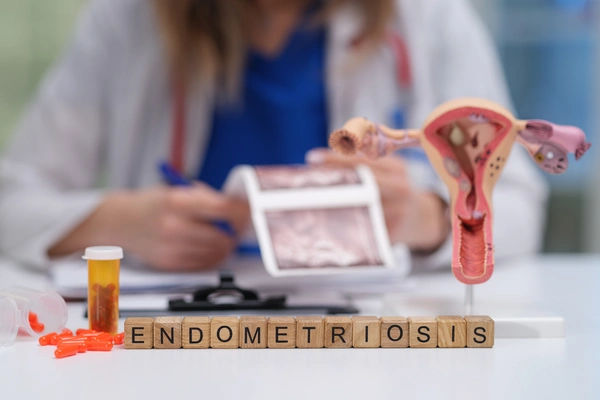Gastrointestinal Disease Overview and Management
Explore an overview of gastrointestinal (GI) diseases, including common conditions, symptoms, causes, and effective management strategies to support digestive health.

Written by Dr. Siri Nallapu
Reviewed by Dr. Rohinipriyanka Pondugula MBBS
Last updated on 26th Aug, 2025

Digestive health is crucial for overall well-being, yet gastrointestinal (GI) diseases are common and can significantly impact daily life. From mild discomfort to severe conditions, GI disorders affect millions of people worldwide. Understanding these diseases, their symptoms, causes, and management can help you take better care of your digestive health.
What Are Gastrointestinal Diseases?
Gastrointestinal diseases refer to disorders affecting the digestive tract, which includes the esophagus, stomach, small and large intestines, liver, pancreas, and gallbladder. These conditions can range from temporary issues like indigestion to chronic diseases such as irritable bowel syndrome (IBS) or inflammatory bowel disease (IBD).
Consult a Top Gastroenterologist
Common Gastrointestinal Diseases
Below are a few gastrointestinal diseases,
- Acid Reflux (GERD) – Stomach acid flows back into the esophagus, causing heartburn.
- Peptic Ulcers – Sores in the stomach lining or small intestine due to excess acid or infection (H. pylori bacteria).
- Irritable Bowel Syndrome (IBS) – A functional disorder causing bloating, cramps, and irregular bowel habits.
- Inflammatory Bowel Disease (IBD) – Includes Crohn’s disease and ulcerative colitis, leading to chronic
inflammation. - Gallstones – Hard deposits in the gallbladder causing pain and digestive issues.
- Celiac Disease – An autoimmune disorder triggered by gluten, damaging the small intestine.
- Constipation & Diarrhea – Common but can indicate underlying problems if persistent.
Symptoms of Gastrointestinal Diseases
Symptoms vary depending on the condition but may include:
- Abdominal pain or cramps
- Bloating and gas
- Heartburn or acid reflux
- Nausea or vomiting
- Diarrhea or constipation
- Unexplained weight loss
- Blood in stool
- Difficulty swallowing
If you experience persistent or severe symptoms, consult a doctor for proper diagnosis.
Causes and Risk Factors
Several factors contribute to GI diseases, including:
- Poor Diet – High-fat, low-fiber, or processed foods can trigger digestive issues.
- Stress – Anxiety and stress worsen conditions like IBS and acid reflux.
- Infections – Bacterial or viral infections (e.g., H. pylori, norovirus) can cause stomach problems.
- Medications – Some drugs (NSAIDs, antibiotics) irritate the stomach lining.
- Genetics – Family history plays a role in diseases like IBD and celiac disease.
- Lifestyle Habits – Smoking, alcohol, and lack of exercise increase GI risks.
How Gastrointestinal Diseases Affect Health
Untreated GI disorders can lead to complications such as:
- Malnutrition – Poor nutrient absorption due to intestinal damage.
- Chronic Pain – Conditions like IBD or gallstones cause long-term discomfort.
- Increased Cancer Risk – Chronic inflammation (e.g., in ulcerative colitis) may raise colon cancer risk.
- Dehydration – Persistent diarrhea or vomiting can lead to fluid loss.
Early diagnosis and management are key to preventing complications.
Tips for Managing Gastrointestinal Diseases
Below are a few tips to manage gastrointestinal diseases,
1. Dietary Changes
- Eat Fiber-Rich Foods – Whole grains, fruits, and vegetables aid digestion.
- Stay Hydrated – Drink plenty of water to prevent constipation.
- Avoid Trigger Foods – Spicy, fatty, or acidic foods worsen reflux and IBS.
- Probiotics – Yogurt, kefir, and fermented foods support gut health.
2. Lifestyle Adjustments
- Exercise Regularly – Physical activity helps digestion and reduces stress.
- Manage Stress – Meditation, yoga, and deep breathing can ease IBS symptoms.
- Quit Smoking & Limit Alcohol – Both irritate the digestive tract.
3. Medical Treatments
- Antacids & PPIs – For acid reflux and ulcers.
- Anti-inflammatory Drugs – For IBD management.
- Antibiotics – If an infection (like H. pylori) is present.
- Surgery – In severe cases (e.g., gallstones, Crohn’s complications).
When to See a Doctor?
Consult a gastroenterologist if you experience:
- Persistent abdominal pain
- Unexplained weight loss
- Blood in stool
- Severe or recurring diarrhea/constipation
- Difficulty swallowing
Early diagnosis can prevent complications and improve quality of life.
How Apollo 24|7 Can Help
If you’re struggling with digestive issues, Apollo 24|7 offers expert consultations, diagnostic tests, and personalized treatment plans. You can:
- Book a video consultation with a gastroenterologist.
- Schedule lab tests (endoscopy, colonoscopy, stool tests).
- Get dietary guidance from nutritionists.
Taking care of your gut health is essential for a healthier life. If you suspect a GI disorder, don’t ignore the symptoms and seek professional help today.
Final Thoughts
Gastrointestinal diseases encompass a wide range of conditions that can significantly impact digestive health and overall well-being. Early diagnosis, proper medical care, lifestyle changes, and a balanced diet play vital roles in managing these disorders.
Consult a Top Gastroenterologist
Consult a Top Gastroenterologist

Dr Bhargav Vuppumalla
General Physician/ Internal Medicine Specialist
5 Years • MBBS MD GENERAL MEDICINE
Bengaluru
Apollo Medical Center, Marathahalli, Bengaluru

Dr Harish K C
Gastroenterology/gi Medicine Specialist
15 Years • MBBS MD DM MRCP(UK) (SCE-Gastroenterology and Hepatology)
Bangalore
Manipal Hospital, Bangalore

Dr. Shivaraj Afzalpurkar
Gastroenterology/gi Medicine Specialist
13 Years • MBBS, MD General medicine (Gold medalist), DrNB (Gastroenterology), MNAMS
Bengaluru
Apollo Clinic, JP nagar, Bengaluru

Dr. Paramesh K N
Gastroenterology/gi Medicine Specialist
16 Years • MBBS, MS ( General Surgery), DNB ( Surgical Gastroenterology)
Hyderabad
Sprint Diagnostics Centre, Hyderabad

Dr Piyush Vishwakarma
Gastroenterology/gi Medicine Specialist
11 Years • MBBS, MD, DrNB,
Delhi
Apollo Hospitals Indraprastha, Delhi
Consult a Top Gastroenterologist

Dr Bhargav Vuppumalla
General Physician/ Internal Medicine Specialist
5 Years • MBBS MD GENERAL MEDICINE
Bengaluru
Apollo Medical Center, Marathahalli, Bengaluru

Dr Harish K C
Gastroenterology/gi Medicine Specialist
15 Years • MBBS MD DM MRCP(UK) (SCE-Gastroenterology and Hepatology)
Bangalore
Manipal Hospital, Bangalore

Dr. Shivaraj Afzalpurkar
Gastroenterology/gi Medicine Specialist
13 Years • MBBS, MD General medicine (Gold medalist), DrNB (Gastroenterology), MNAMS
Bengaluru
Apollo Clinic, JP nagar, Bengaluru

Dr. Paramesh K N
Gastroenterology/gi Medicine Specialist
16 Years • MBBS, MS ( General Surgery), DNB ( Surgical Gastroenterology)
Hyderabad
Sprint Diagnostics Centre, Hyderabad

Dr Piyush Vishwakarma
Gastroenterology/gi Medicine Specialist
11 Years • MBBS, MD, DrNB,
Delhi
Apollo Hospitals Indraprastha, Delhi




